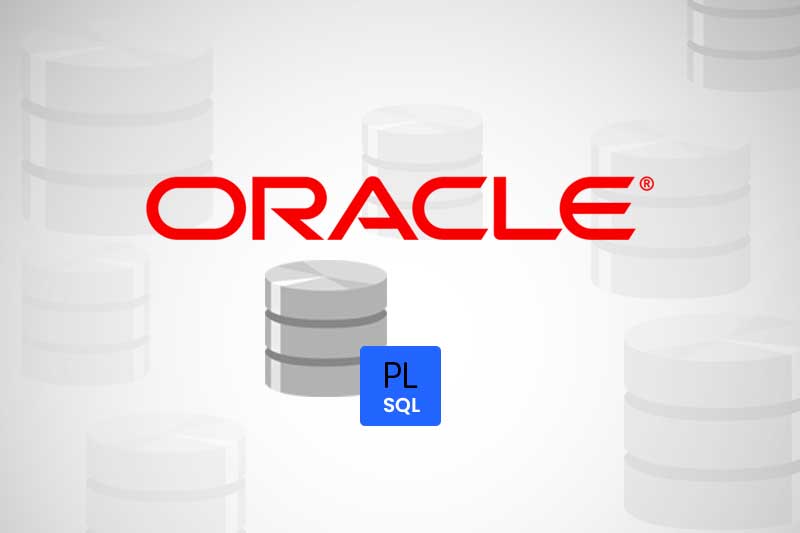ORACLE PL/SQL

ORACLE PL/SQL CONTENTS
Oracle Architecture (BASIC to Modirate)
- 1. What is Oracle Database Server
- 2. Connecting to Database Instance in Dedicated Server Mode
- 3. Connecting to Database Instance in Shared Server Mode
- 4. Introduction to File Structures in Database
- 5. Introduction to Oracle Memory Structure(SGA, PGA , UGA)
- 6. Oracle Shared Pool, JAVA Pool, Large Pool, Stream Pool, etc.
- 7. Introduction to Oracle’s Processes(Server, backgroud, Slave)
- 8. Oracle Database Server Installing Scenarios
- 9. Hardware Consideration For Installing Oracle Database
- 10. What is a Transaction in Context of RDBMS(Atomicity,Durability,Consistency,Isolation)
- 11. Distributed Transaction
- 12. Autonomous Transaction
- 13. What is Locking?(Optimistic and Pessimistic)
- 14. What is Blocking in Oracle
- 15. Types of DDL Locks in Oracle
- 16. Types of Locks and Latches in Oracle
- 17. How Commit and Rollback Works in Oracle
- 18. Undo Management In Oracle
- 19. Common Performance Issues in Redo Log
- 20. Oracle Storage Terminology
- 21. High water mark and free lists
- 22. Oracle Storage Parameters(PCTFREE , PCTUSED,INITTRANS, MAXTRANS, INTIAL, NEXT, PVTINCREASE)
SQL(Beginers to advance)
- 1. What is SQL and Why learn SQL
- 2. An Introduction to Databases
- 3. DBMS Vs RDBMS and RDBMS Vs ORDBMS
- 4. An Introduction to SQL*Plus
- 5. The SQL Execution Environment
- 6. The WHERE and ORDER BY Clauses
- 7. System defined fuctions
- 8. Reading Syntax Diagrams
- 9. Date and Conversion Functions
- 10. Aggregate Functions, GROUP BY, and HAVING Clauses
- 11. Simple and Complex joins
- 12. Subqueries(Simple, Co-related, Scalar, Inline view)
- 13. Insert, Update, and Delete(DML)
- 14. Create, Alter, and Drop Tables(DDL)
- 15. Indexes, Sequences, and Views
- 16. The Data Dictionary, Scripting, and Reporting
- 17. Users, Privileges, Roles, and Synonyms
- 18. Regular Expressions and Hierarchical Queries
- 19. Advance SQL Concepts ( Analytic Fuction, WITH Clause, Rollup, Cube)
Oracle PL/SQL (Beginer to Advance)
- 1. Overview of PL/SQL
- 2. PL/SQL Language Fundamentals
- 3. PL/SQL Data Types
- 4. Using PL/SQL Control Structure
- 5. Using PL/SQL Collections and Records(Varray,Nested and Associative)
- 6. What is Static SQL and its use
- 7. What is Dynamic SQL and its use
- 8. PL/SQL Subprograms(Procedure, Function)
- 9. Concept of Triggers and there use
- 10. PL/SQL Package (System and User defined)
- 11. Handling PL/SQL Errors
- 12. Tuning PL/SQL Applications for Performance
- 13. How PL/SQL Optimizes Your Programs
- 14. When to Tune PL/SQL Code
- 15. Guidelines for Avoiding PL/SQL Performance Problems
- 16. Collecting Data About User-Defined Identifiers
- 17. Reducing Loop Overhead for DML Statements and Queries with Bulk SQL
- 18. Writing Computation-Intensive PL/SQL Programs
- 19. Tuning Dynamic SQL with EXECUTE IMMEDIATE Statements and Cursor Variables
- 20. Tuning PL/SQL Subprogram Calls with NOCOPY Hint
- 21. Compiling PL/SQL Units for Native Execution
- 22. Performing Multiple Transformations with Pipelined Table Functions
UNIX (Beginer to Modirate)
- 1. Unix Getting Started
- 2. Unix File Management
- 3. Unix Directories
- 4. Unix File Permission Setup
- 5. Unix Environment
- 6. Unix Pipes and Filters
- 7. Unix Processes Management
- 8. Unix Communication(ftp,telnet,finger,ping)
- 9. Unix – The vi Editor
- 10. Unix- What is Shell
- 11. Unix- Using Variables
- 12. Unix- Special Variables
- 13. Unix – Using Arrays
- 14. Unix - Basic Operators(C Shell and Korn Shell)
- 15. Unix – Decision Making(if..else..if,if...elif...else...fi,case,loop etc.)
- 16. Unix – Shell Substitutions
- 17. Unix – Quoting Mechanisms
- 18. Unix – IO Redirections
- 19. Unix – Shell Functions
- 20. Unix - Manpage Help
- 21. Unix - Regular Expressions
- 22. Unix – File System Basics
- 23. Unix – User Administration
- 24. Unix – System Performance
- 25. Unix – System Logging
- 26. Unix – Signals and Traps
- 27. Unix – Useful Commands
- 28. Unix – Builtin Functions
Interview Questions
- 1. Oracle Architecture Interview Question
- 2. SQL Interview Questions
- 3. PL/SQL Interview Questions
- 4. Unix Interview Questions
- 5. OCA-OCP Dump Questions details discussion and solution
